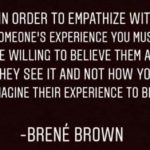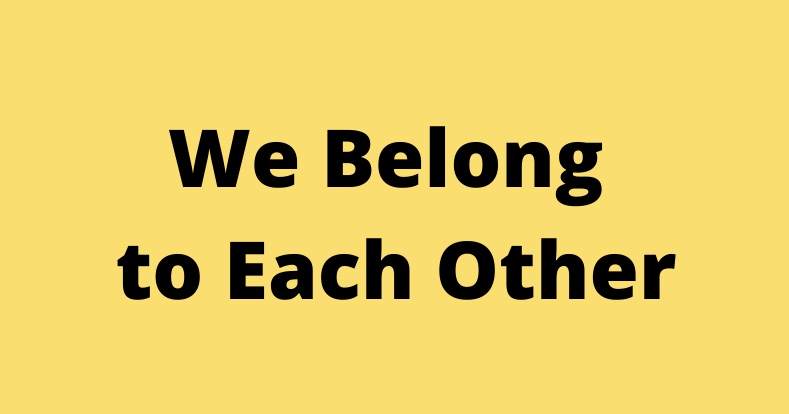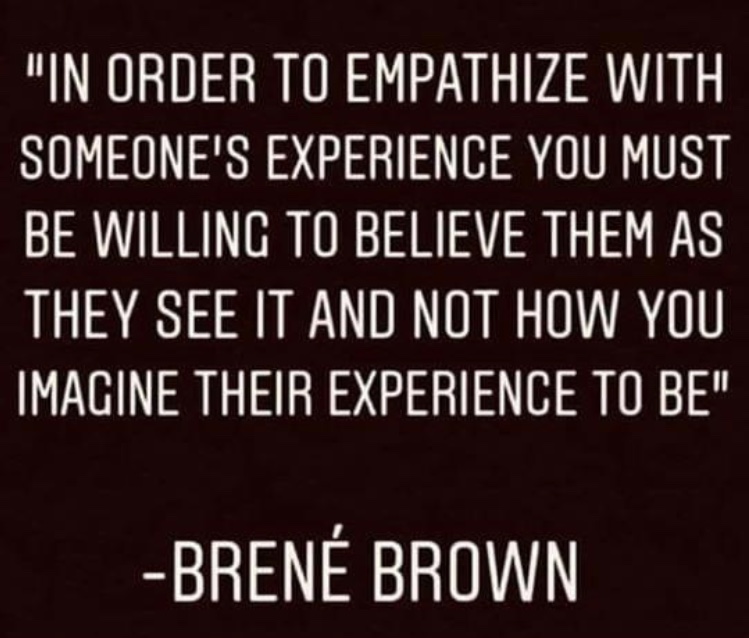We Belong To Each Other
I came to the US in 1970 at the age of six. My father had an opportunity for a better life in New York City than what was available in India. With only $28 of cash and no credit cards (India had a very restrictive currency control policy at the time), we came to this scary place to make a life with people that didn’t look like us.
In a powerful body-based trance-like session facilitated by my friend Holly, I was changing a repeating pattern I label as tension from wanting to control things. In the exploration phase of this session, I experienced a lot of sensation in my lower abdomen. When Holly started talking to that part of my body, we discovered that it was about having to carve out space for myself.
She took me back to my birth and a memory of needing to carve out space for myself in my family – a new presence that would take attention from my brother, another mouth to feed using limited family resources. I know that I was loved and well taken care of by my parents, my brother and my extended family of aunts, uncles, cousins and grandparents. Yet, I tapped into this experience of having to carve out space. Huh?!
Holly intuited that I hadn’t gotten to the bottom of this. With her guidance, I tapped into even older parts of me that had experienced moving into new lands with established people, and having to make myself valuable in order to survive. There wasn’t a memory of it, more of a feeling tone and knowing.
I have heard that my ancestors had been forced to uproot themselves and relocate due to drought drying out a river long ago, and more recently, due to the oppression of colonization and forced religious conversion. My people (small in numbers, tied together by unique food preparations, a common only-spoken language as ancient as Sanskrit, and a reverence for relationship) are now spread out across many continents, had to carve out space for themselves in diverse cultures. They were extremely relational. My mother could recall vast spans of her family tree including where these distant relatives lived and details about their lives. The language reflected this culture. There are many words for flavors and textural experiences of eating food. Each nuance of a familial relationship is honored with a different word in my native language and the word that means to think of someone is synonymous with loved-family, that we belong to each other.
Forced relocation required that my ancestors find acceptance and belonging within a much larger population where they settled. They learned to adapt and create value for others to find the jobs in professions that their new society valued. They valued education and skill and so they became doctors, engineers, administrators. Adaptability and creativity were core strengths, and as it turns out, also blind spots. My people’s culture has dissolved over time into the many local cultures where my people settled. Younger generations (like mine and my nieces’ and nephews’) don’t know what this culture actually is – not speaking our native language, not having enjoyed our historical food, not retaining how distant family members are related.
Science tells us that trauma carries forward for seven generations. The trauma of forced relocation and colonization live within many of us, my people included. This ancestral trauma and that of my experience moving to NYC resulted in me forgetting my original shape and my unique inner light, in order to fit in and survive. It has only been through deep personal growth work that I am reconnecting with those nearly-lost parts of me. Looking back, I am awed by the perfection that my wife (who is from this same culture) and I now teach about relationship and that we all belong to each other.
I hadn’t realized all of the ways that moving to the US in 1970 was connected to my ancestral past and then-future. While I had explored and mostly healed the more apparent experiences of “scary place, little family, not feeling safe”, this ancestral aspect of having to carve out space, to adapt in order to belong, to make myself valuable by excelling in school and career are new ground to explore, cultivate and plant new seeds into.
If I am impacted by experiences of not belonging in society that create trauma in my body; if what I do today impacts seven descendent generations; then recognizing these facts, how do I want to be and act now? How do I better support myself and others in knowing that we belong to each other?
 Previous Post
Previous Post

Recent Comments